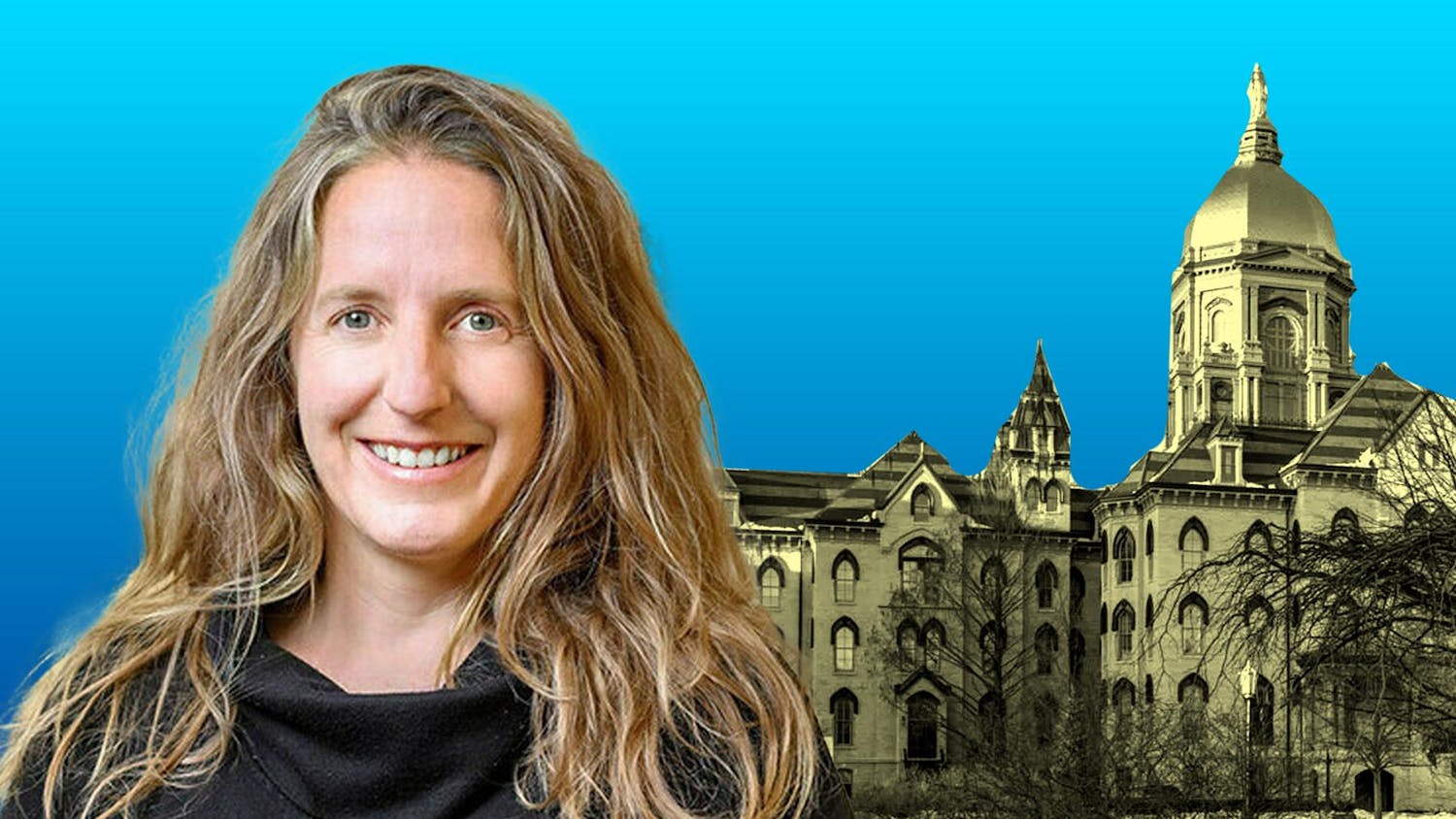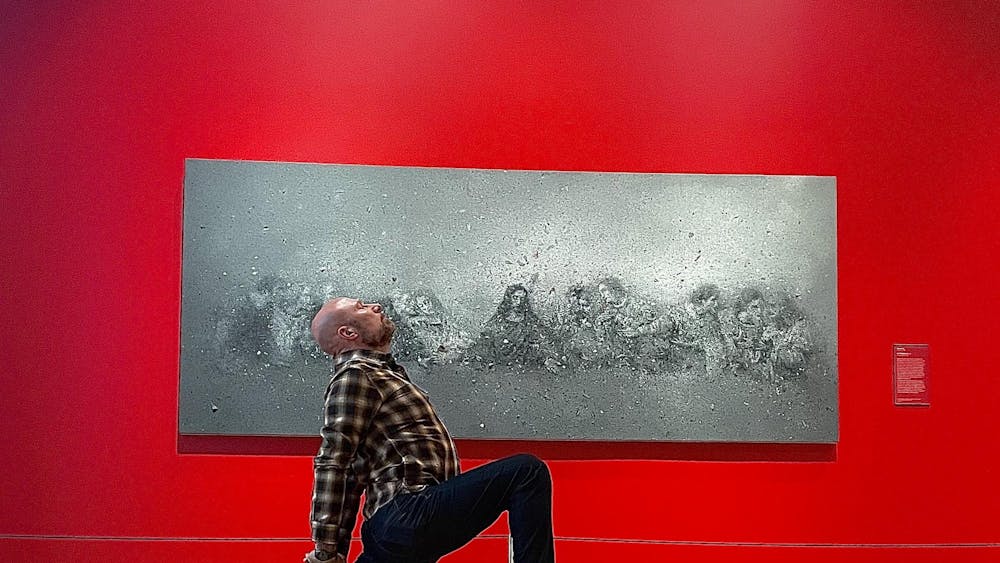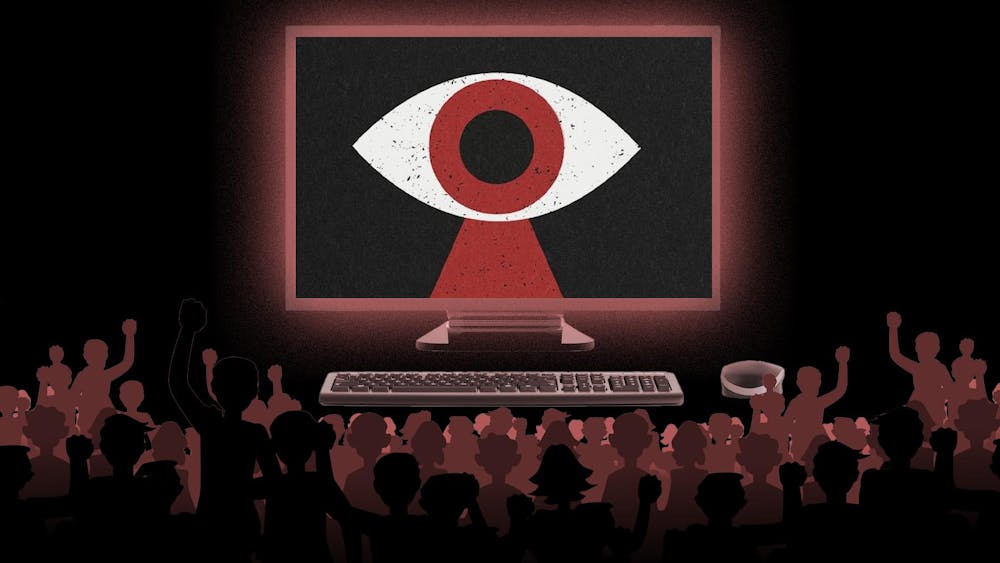I decided on Notre Dame after I attended a summer program here in 2017. There, I went to my first mass, in the Basilica of the Sacred Heart. There was a paper booklet with music in it, and a group of friends by my side in the pew. When it came time to take the Eucharist, I was directed by my whispering neighbor to cross my arms. Instead of giving me the Eucharist, the priest put his hand on my head, looked me in the eyes, and said very genuinely, “God bless you.” And then I left. I remember feeling very happy that so many people would come together to worship God and be spiritually renewed in such a beautiful atmosphere. I heard the echoes of the choir singing as I left the Basilica and walked into the crisp night air.
That was when I knew this was the place for me: Renee Yaseen, Muslim.
I have witnessed things here at Notre Dame that I want for the Muslim community in the United States, and for my Syrian brothers and sisters: a boldness of spirit, a grandiosity of gathering, a sense of belonging. A proud declaration of identity. There was a time when Catholic immigrants to this country were like Muslim- and Arab-Americans now: deeply fragmented by ethnoreligious, doctrinal or sectarian conflicts, traumatized by war in their home countries, squandered by poverty and stereotypes and worst of all, deprived of opportunities to openly and proudly declare their identity. After two wonderful years here, I believe that the parallels in our histories contribute to the understanding and valuation of faith that we have in common. And as Arab and Muslim-Americans heal within ourselves and our communities the historical and ancestral reverbrations of centuries of war, genocide and colonization, I pray that we are someday able to unite in the way that Catholics from all over the world unite around the University of Notre Dame.
Yes, Notre Dame is Catholic. But more importantly to me, it’s a vibrant place for deep religious inquiry and scholarship. I was not deterred at all by Notre Dame’s Catholicness. On the contrary, I was drawn in by the tenacity with which it upheld its values.
There are very, very, very few places in the United States where a young person can study Islam in English, at the undergraduate level, with academic intensity and philosophical rigor — but Notre Dame’s theological library is incredibly rich and diverse. It helped me begin my own independent inquiry into Islam during my freshman year. Some rainy weekend, after a day of exploring, I called my mother in shock after discovering shelves of books written in Arabic on the 13th floor. Hundreds, maybe thousands of books in the sweeping, elegant calligraphy I recognized. Never before in my life had I had access to so much knowledge about my own religion’s history. I read a book on the role of suffering in Mu’tazilite theology. And another on taquiyyah (religious dissimulation in Islam). I have several more in my room that I’ve renewed multiple times. No one’s ever recalled them from me, which might say something about the interests of the rest of the student body, but more for me, I guess.
I was required to take two theology classes here. I took my foundations course with Professor Jeremiah Coogan and my developmental theo, “God’s Grace and Human Action” with Professor Joseph Wawrykow. Both were phenomenal. I was not only learning information about Christianity and its history for the first time, but I was also doing cross-analyses in my brain, trying to synthesize and compare each of my discoveries with my knowledge of Islam. For my efforts, I earned two A’s and a personal note from the theology department encouraging me to continue my studies in the discipline. For me, immersing myself in the intense study of a topic in someone else’s religion was equally rewarding as it was difficult and uncomfortable. I recommend it to everyone. Belief formation is hard intellectual and spiritual work. It takes time and constant attention.
I feel comfortable being Muslim at Notre Dame because I know that faithful people everywhere want many of the same things. They understand that faith feeds us. It makes life bright and paints the sky in ebullient colors. Even when they are different than me, I am glad to live and work among people of faith, wherever or whoever they are.
As a parting note, I’d like to share with you an insight from the Holy Quran.
“We have given a law and a way of life to each of you. Had God wanted, He could have made you into one nation, but He wanted to see who are the more pious ones among you. Compete with each other in righteousness. All of you will return to God who will tell you the truth in the matter of your differences.” (Surah Al-Ma’idah 5:48)
I believe that religious differences exist by God’s will. They do not exist so that we might see ourselves as better or more enlightened than those who are different than us, but that we may be humbled by how much we might learn from them.
Renee Yaseen is a junior who majors in international economics and Arabic. She’s currently on a gap semester doing lots of creative stuff and lots of un-creative stuff. She can be reached via the chat on a shared Google Doc at 3 a.m., on Twitter @ReneeYaseen or by email at ryaseen@nd.edu
Food for faith: what it’s like to be Muslim at Notre Dame
The views expressed in this column are those of the author and not necessarily those of The Observer.









